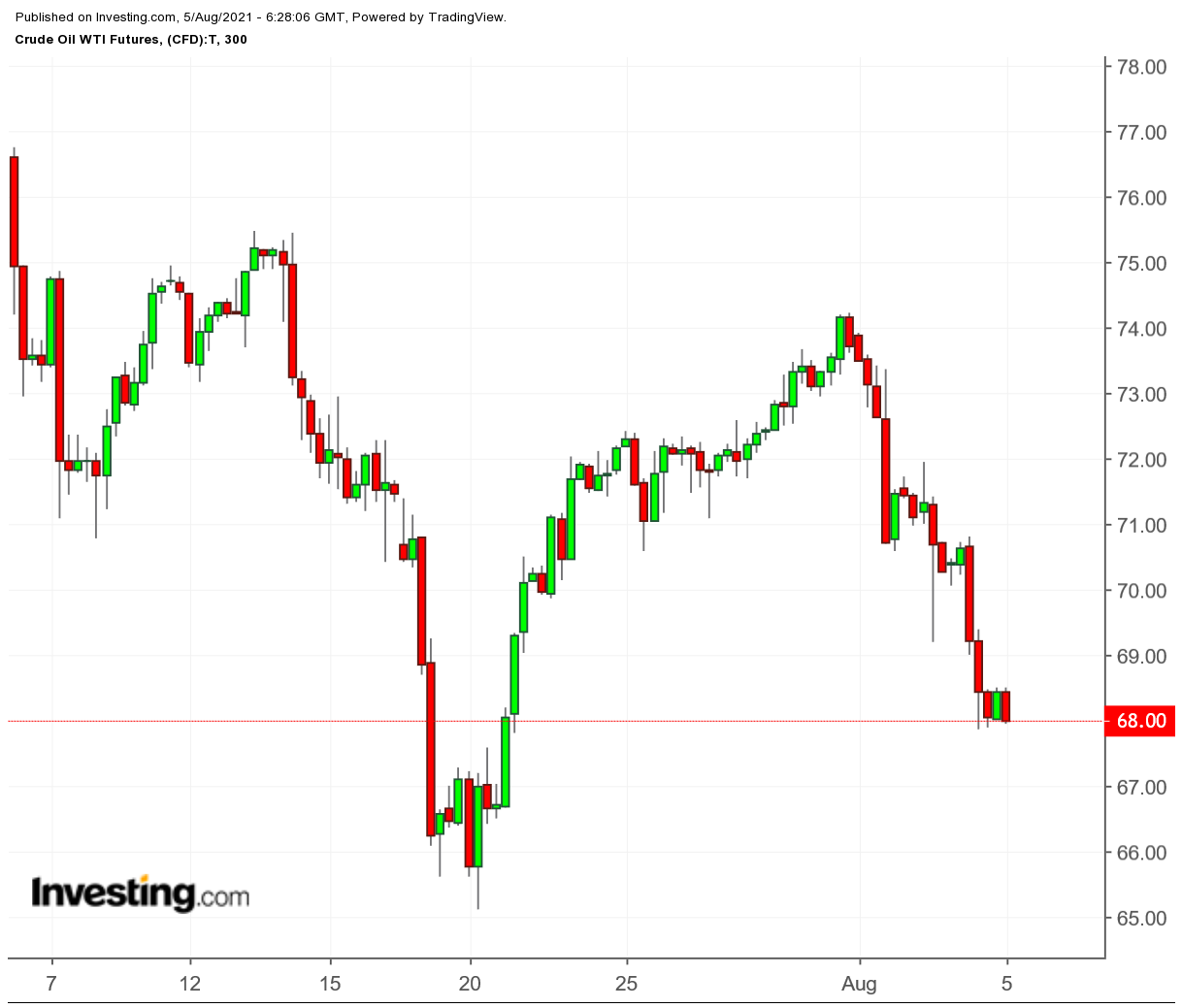Oil prices fell this week, largely based on concerns that:
- Chinese oil demand may drop
- US economic data is not encouraging
- Increasing oil production from OPEC+ will be a drag on prices

However, traders should keep in mind that demand is growing in other regions of the world, despite ongoing coronavirus concerns. Here’s what to watch for in the coming weeks:
1. China
Data out of China (which isn’t always accurate) indicated that factory activity growth declined in July, which is the first time in over a year that the rate of growth of factory activity in that country has contracted. This prompted concerns that China, which has been leading Asian economic growth, could be showing signs of faltering.
If China’s economy slows down or even contracts, then oil demand could falter. Of additional concern are lockdowns due to coronavirus cases in China—46 cities are currently restricting the movement of citizens over coronavirus cases.
China is also cracking down on its 'teapots,' or small independent refineries. These refineries are given quotas for how much crude oil they can import by the Chinese government. Apparently, they have been trading crude oil quotas in order to maximize the amount of crude oil they can import. Too much fuel production from these independent refineries has hurt the profit margins of Chinese state refineries. Traders could see Chinese crude oil imports reduced as a result of these actions.
2. United States
The ISM index of national factory activity fell in July, likely due to shortages and of raw materials and inflation. Data released from ADP (NASDAQ:ADP), the payroll company, revealed that although the private sector added 330,000 jobs in July, that is less than half the number of jobs added in June. The July jobs number is well below the 653,000 jobs economists expected to be added.
EIA data showed that U.S. crude oil stockpiles increased last week, though gasoline inventories fell. However, analysts suggested that the likely cause for the growth in crude oil stockpiles was due to a drop in exports, not a drop in domestic demand.
Traders should pay attention to export numbers over the coming weeks. If exports continue to trend lower, it could indicate waning global demand.
Market watchers should be prepared for U.S. domestic demand for gasoline to drop in the coming weeks, because summer vacation is coming to an end in many parts of the country. Across the southern part of the United States, schools open in early-August or mid-August. Gasoline demand tends to drop in the U.S. as students return to school.
3. OPEC+
News that OPEC oil production hit its highest levels since April 2020 also hit the market this week. Data from a Reuters survey revealed that OPEC pumped an additional 610,000 bpd in July compared to June. Starting this month (August) OPEC+ is increasing production by 400,000 bpd and plans to increase output by that amount every month through April 2022.
This could cause a dislocation of supply if coronavirus restrictions return as some are expecting. However, market watchers should remember that OPEC+ is still meeting monthly and may still decide to decrease its production increases if the market shows weaknesses.
Aramco (SE:2222) increased its official selling prices (OSPs) for oil going to Asia for the month of September. If buyers hesitate to pay more to big suppliers like Aramco, this will be a sign that demand isn’t as strong as forecasters predicted. Aramco exports more than 60% of its oil to Asia.
4. India
Market watchers shouldn’t overlook fuel demand growth in India. Data show that gasoline demand rose by 646,000 bpd in July, even though, according to Johns Hopkins University, India coronavirus rates make it the “second most-infected country in the world.” India imports almost all of its crude oil needs.
